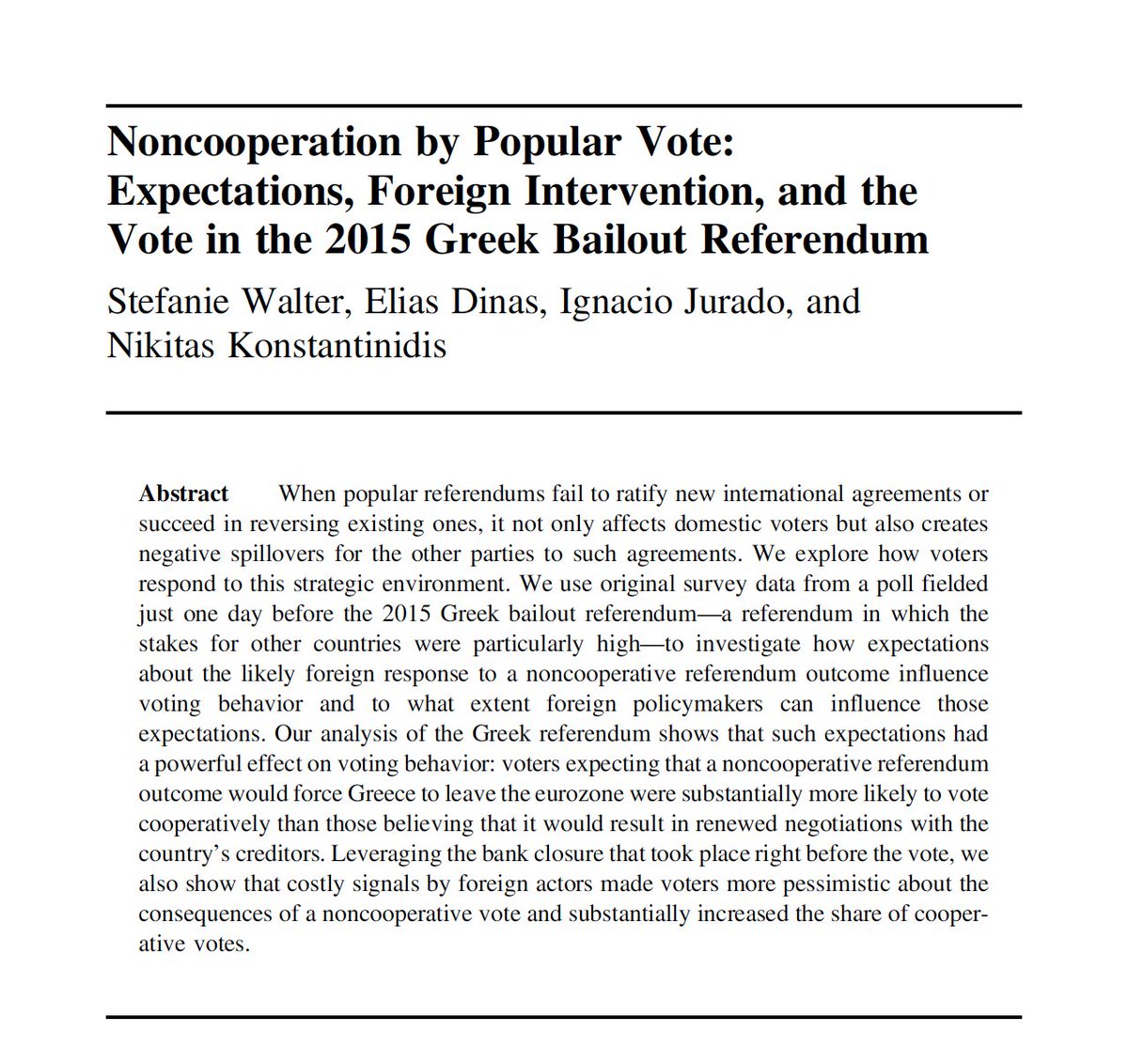
Professor for International Relations and Political Economy @IPZuser @UZH_ch. #PoliticalScience I like blue skies: stefwalter@bsky…
How to get URL link on X (Twitter) App



 If you have ever wondered…
If you have ever wondered…
 2. Some context: This data is from an online-survey of 9423 EU-27 citizens run by @daliaresearch in June 2018 (I designed the questionnaire, it’s from a larger research project I am conducting on EU-27 responses to Brexit).
2. Some context: This data is from an online-survey of 9423 EU-27 citizens run by @daliaresearch in June 2018 (I designed the questionnaire, it’s from a larger research project I am conducting on EU-27 responses to Brexit).

 2.We examine voting behavior in national referendums that reject international cooperation and thus creates strategic incentives for foreign governments to get involved.
2.We examine voting behavior in national referendums that reject international cooperation and thus creates strategic incentives for foreign governments to get involved. 